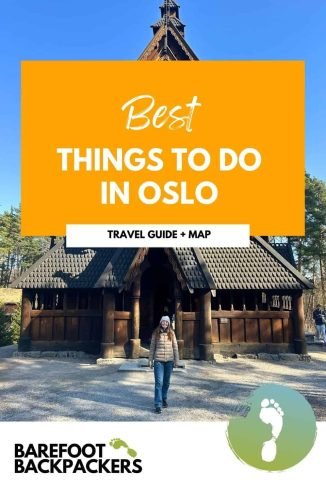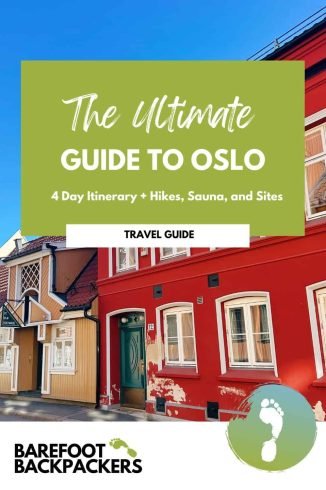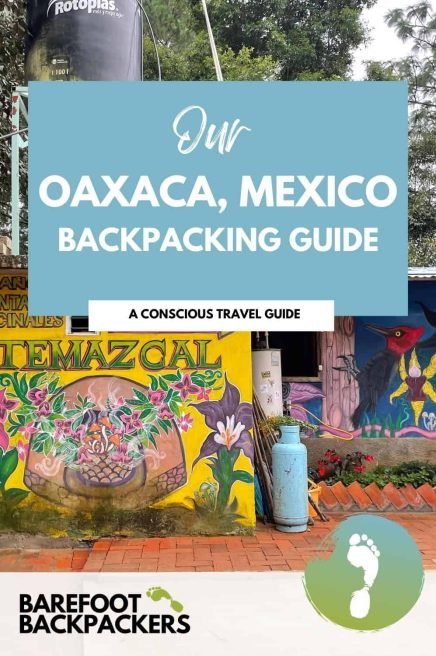Here is our Oaxaca travel guide – our favorite state in Mexico. It’s wild and diverse, stretching from rugged mountains to golden beaches, and is home to Indigenous traditions, ancient ruins, sacred foods, and deep spiritual practices. Many travelers say Oaxaca is the cultural heart of Mexico, and after spending time here, it’s easy to see why. You can surf in Puerto Escondido, sit in a ceremony in San José del Pacífico, eat mole in Oaxaca City, or soak in natural rock pools at Hierve el Agua. It’s truly a place full of wonder. Check out our Backpacking Mexico Travel Guide for a more in-depth overview.
Whether you’re drawn to wellness practices, history, food, or just the life of the mountains and coast, Oaxaca offers a slower, deeper kind of travel. Below is a guide to the main stops we recommend for backpackers and conscious travelers exploring this magical region.
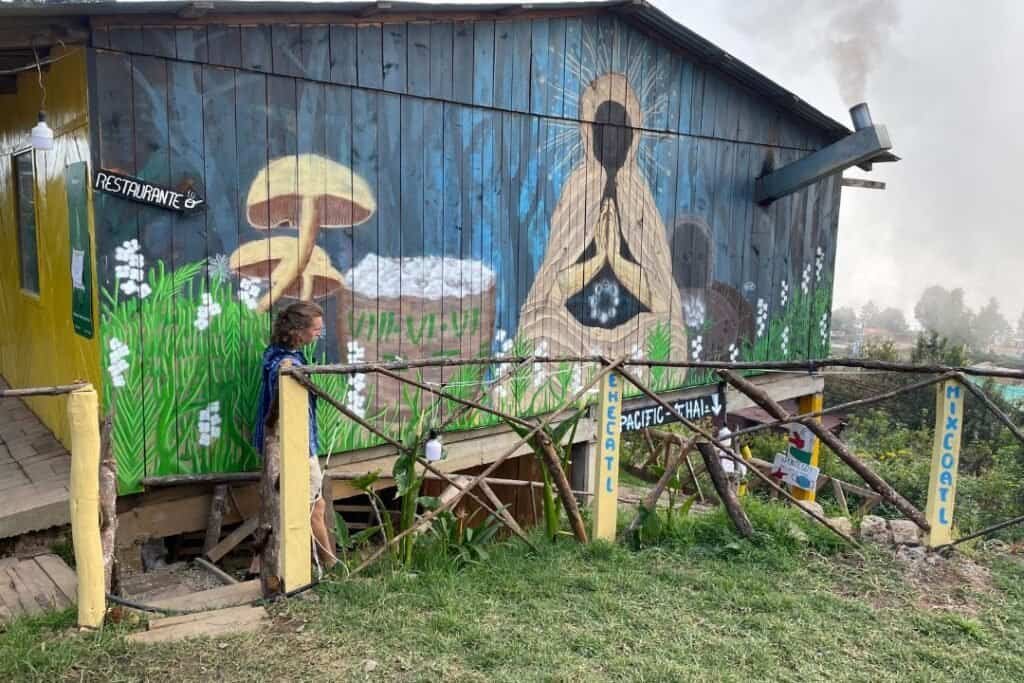
This blog is supported by the community. If you choose to purchase through our links, we may earn a small commission, which allows us to keep creating content. As an Amazon Associate, we earn from qualifying purchases. Learn more.
Backpacker’s Travel Guide to Oaxaca
Puerto Escondido
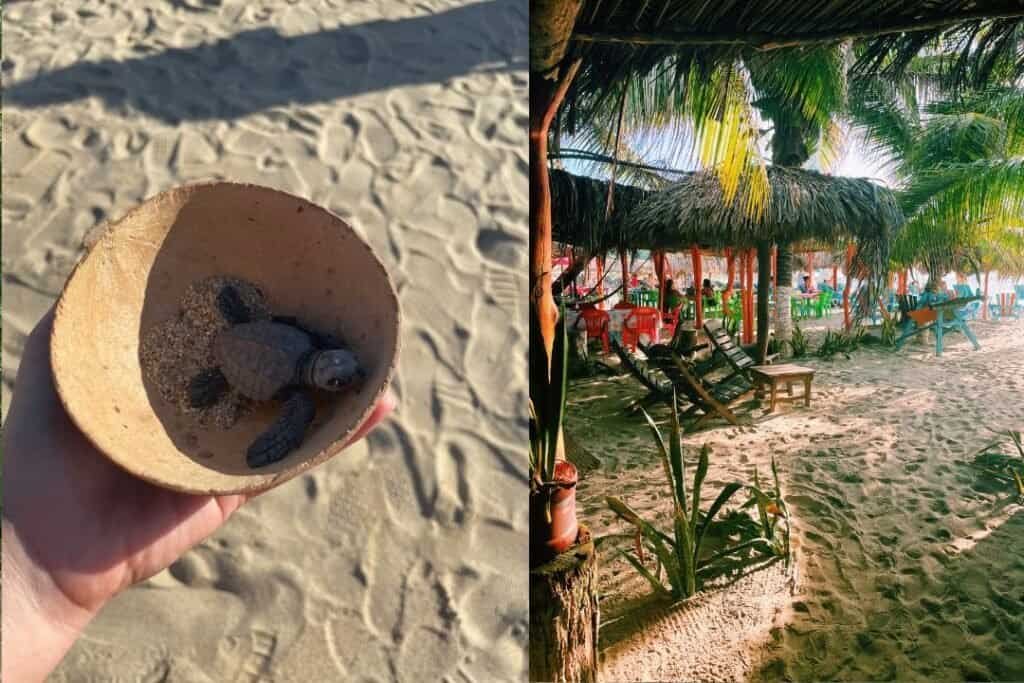
Puerto Escondido is Oaxaca’s surf town and one of the most famous beach destinations on the Pacific coast. If you’re into surfing, Zicatela Beach is world-renowned for its big waves — but it’s not for beginners. Instead, check out La Punta or Carrizalillo, where calmer waters make it possible for new surfers to take lessons. The surf culture here runs deep, and even if you don’t surf, it’s worth watching the sunset surf sessions with a cold beer or agua fresca in hand.
The town is more spread out than many expect. We recommend staying in La Punta. However, Backpackers on a tighter budget often stay in Zicatela, which is cheaper for hostels and food. Then, taking short taxis or colectivos to La Punta or Zicatela for beach days and nightlife. Coconut vendors sell fresh coconuts or grab them right from the trees. There are small family-run restaurants that dish out hearty Oaxacan meals for just a few pesos. In contrast, La Punta is trendier and more developed, with boutique hostels, cafés, and yoga spaces. Many travelers bounce between the two depending on budget and mood.
A highlight in Puerto is the bioluminescent lagoon tour. Just outside the town, the water lights up with naturally glowing plankton at night. It was a surreal experience with the trails of sparkling blue light. Boat tours leave after dark, and you can even jump in to swim among the glowing ripples. Combined with the surfing, beach life, and laid-back rhythm of the coast, Puerto Escondido is a place where many travelers plan to stay three days and end up staying three weeks.
Mazunte
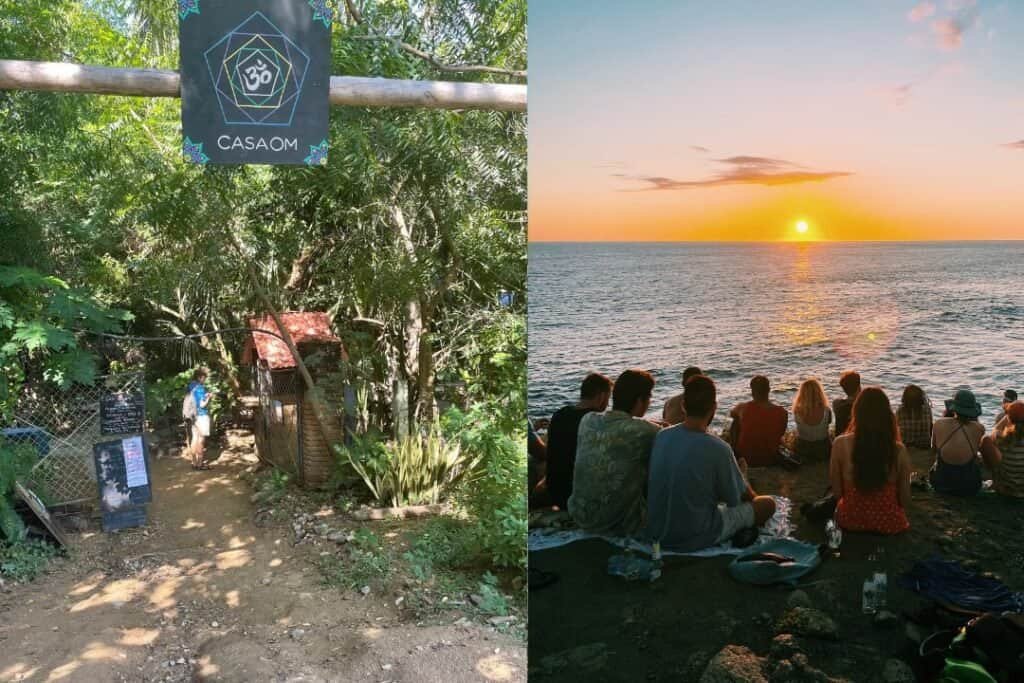
Mazunte feels like Puerto’s quieter, more spiritual sister. Once a tiny fishing village, it’s now a hub for wellness holiday seekers, yogis, and alternative travelers. The beaches are calm and swimmable, and the town itself has a gentle, bohemian energy. You’ll find yoga classes, sound healing, reiki sessions, meditation groups, and small health cafés serving smoothie bowls and plant-based meals. There are also rustic outdoor spots serving BBQ fish and seafood. Many travelers come for retreats, but it’s also possible to just show up and explore what calls to you.
Mazunte is also known for its connection to nature. The Mexican Turtle Center here is dedicated to the conservation of sea turtles, and if you visit between July and December, you may witness hatchlings making their way to the ocean. Snorkeling and boat trips are popular too, especially for spotting dolphins or even whales further out at sea. As the sun sets, head up to Punta Cometa, a rocky viewpoint that’s one of the best places on the Oaxacan coast to watch the sky turn gold and pink.
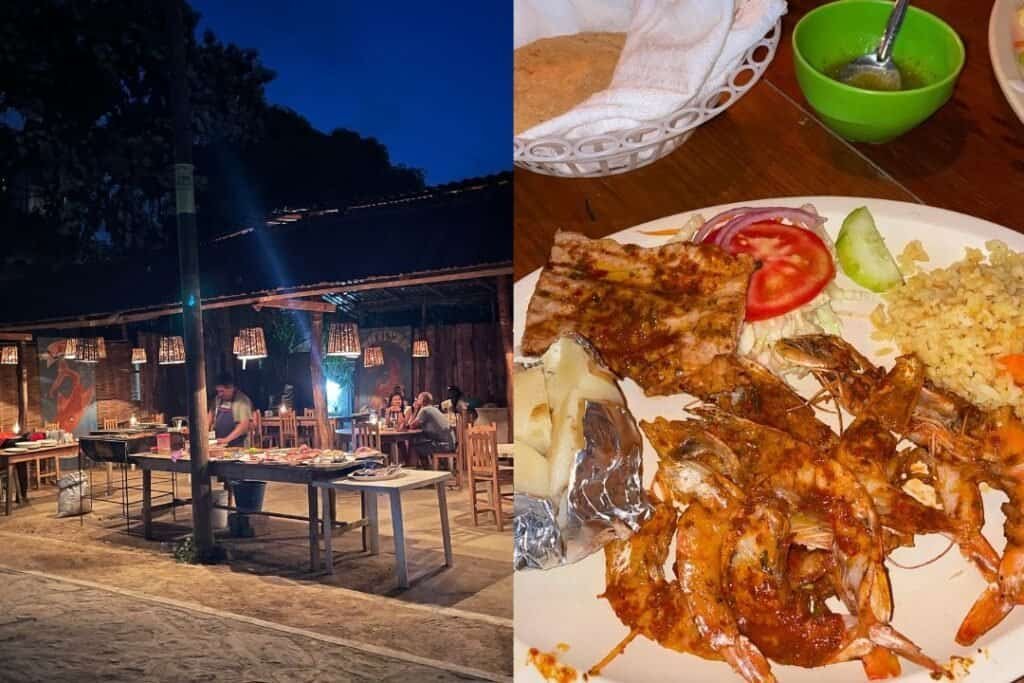
San José del Pacífico
High up in the Sierra Sur mountains lies San José del Pacífico, a mystical village famous for two things: its breathtaking sunsets and its connection to sacred plant medicine and temazcals. At over 2,500 meters above sea level, the village often sits above the clouds, creating views that feel otherworldly. Staying in a simple wooden cabin with a fireplace is part of the charm — nights get cold here, and it’s a cozy change from the coast. We stayed in rustic cabins at Cabañas la Cumbre, a perfect place to reset and meet other backpackers.
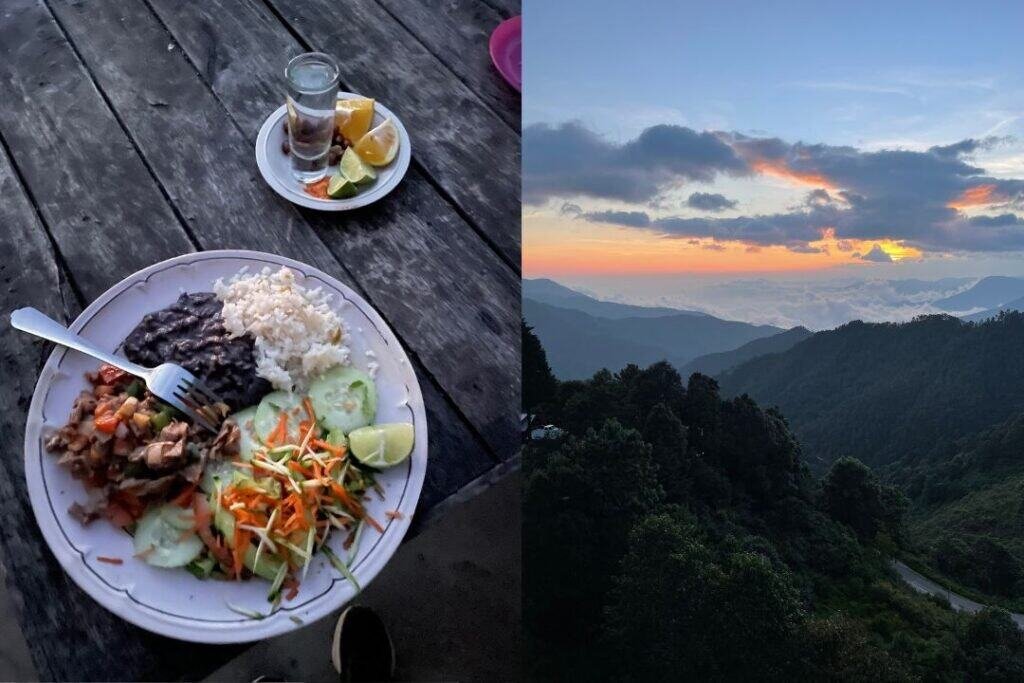
San José del Pacífico has a long history with magic mushrooms, and while some travelers come for that, the village is also a center for traditional healing practices. A must-try is the temazcal, a Mesoamerican sweat lodge ceremony led by local healers. The ritual involves heat, steam, herbs, and chanting, and is designed to cleanse both body and spirit. Between the mountains, the mysticism, and the wellness practices, San José is one of those places where time seems to bend — people often stay longer than they planned. We absolutely loved our time here and would love to return.
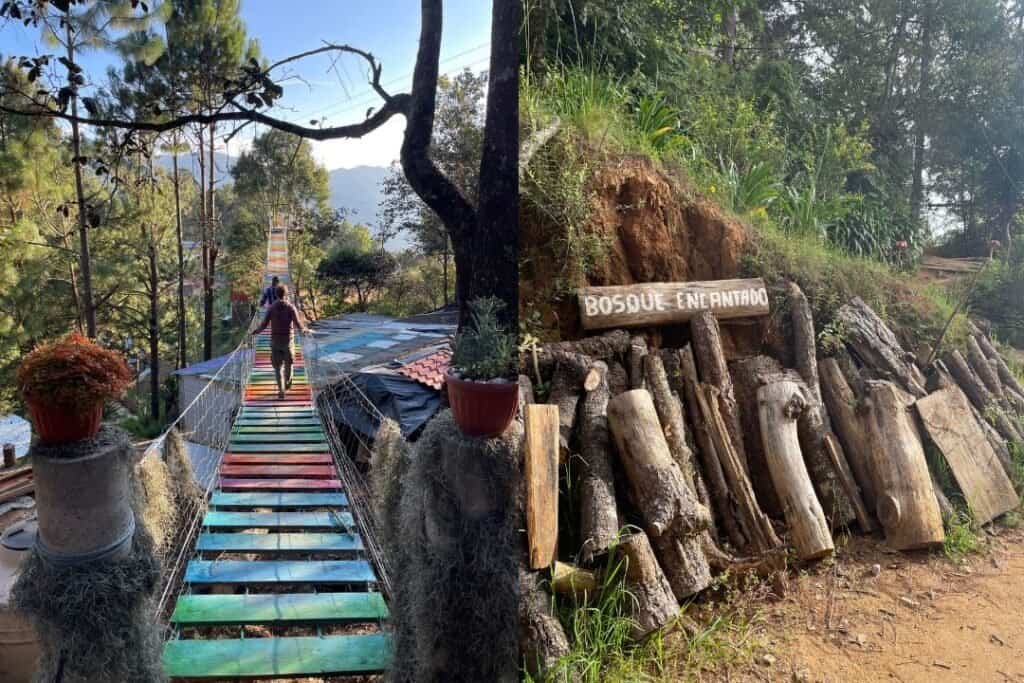
Oaxaca City
Oaxaca City is the cultural and culinary capital of the region, and it’s a place you could easily spend a week without running out of things to do. The city is a UNESCO World Heritage Site, filled with colonial architecture, cobblestone streets, and colorful markets. Every day feels like a celebration — music on the streets, festivals spilling out into the squares, and food that is unlike anywhere else in Mexico.
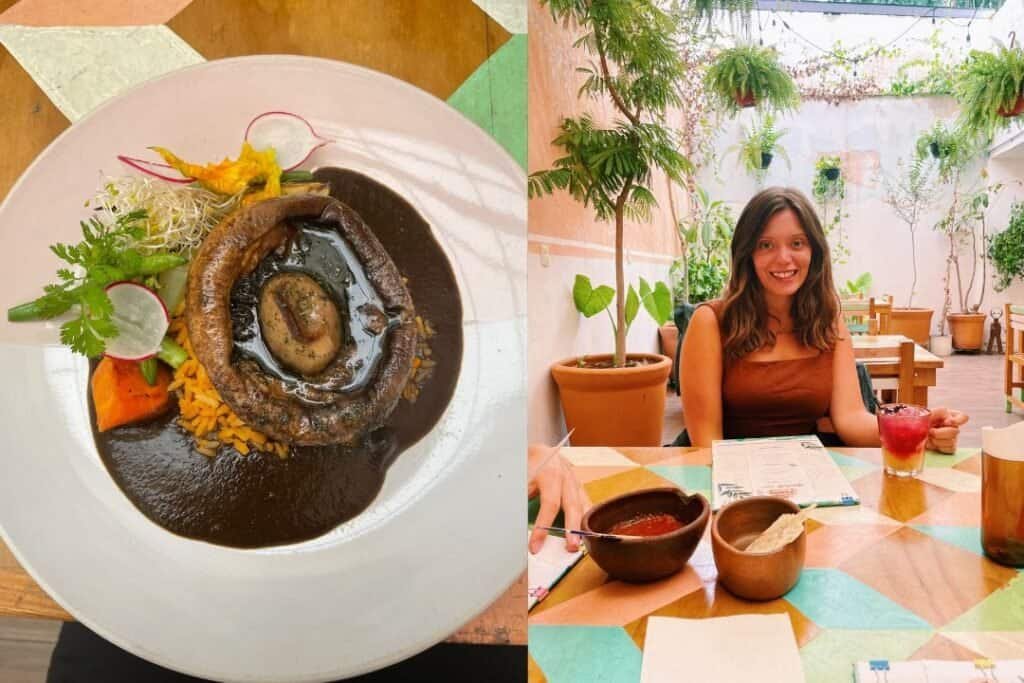
Food is central to the Oaxacan experience. The city is the birthplace of mole, a rich sauce made in countless variations from chilies, chocolate, nuts, and spices. Mercado 20 de Noviembre is the place to go for grilled meats and traditional dishes, while Mercado Benito Juárez is great for local snacks like chapulines (grasshoppers) and artisanal chocolate. Cooking classes are also popular, letting you learn the secrets of Oaxacan cuisine to take home.
From Oaxaca City, you can take some of the region’s best day trips. Monte Albán, the ancient Zapotec capital, sits on a hilltop just outside the city and offers stunning ruins with views across the valleys. Hierve el Agua, about 1.5 hours away, is another highlight: petrified waterfalls formed from mineral deposits, with natural infinity pools overlooking the mountains. Other day trips include the artisan villages of Teotitlán del Valle (famous for weaving) and Mitla, an archaeological site known for its intricate stone mosaics. These trips make Oaxaca City more than just a cultural hub, but the heart of Oaxacan tradition and history.
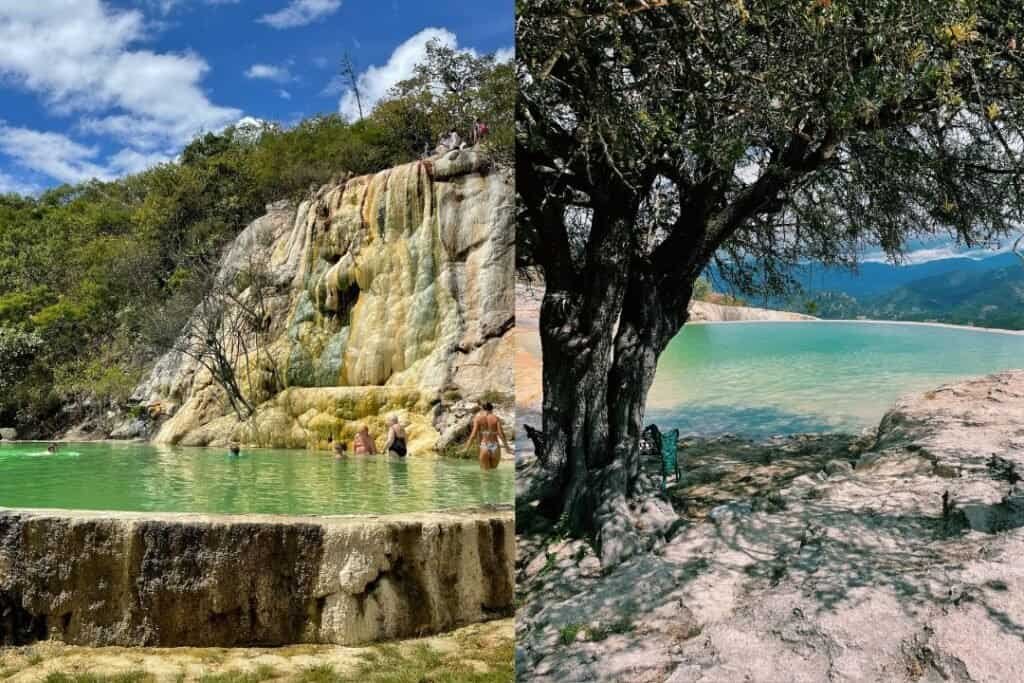
Practical Guide to Oaxaca
Getting Around
- Long-distance buses connect Oaxaca City with Puerto Escondido (10–12 hours) and San José del Pacífico (6–7 hours). They’re safe but winding — bring snacks and motion-sickness tablets. Stopping in the mountain down of
- Colectivos and local buses run between smaller towns. Taxis are cheap in coastal areas and are often shared.
- Flights connect Oaxaca City with Puerto Escondido in under an hour, a good option if you’re short on time.
Where to Stay
- Puerto Escondido: Selina Puerto Escondido (digital nomads), La Punta Beach House (chilled surf hostel).
- Mazunte: Hridaya Yoga for retreats, Posada Ziga for beachfront stays.
- San José del Pacífico: Cabañas La Cumbre (cabins with panoramic views).
- Oaxaca City: Casa Angel Hostel (backpacker favorite), La Betulia Bed & Breakfast (quiet, boutique feel).
Budget
Oaxaca is budget-friendly compared to Yucatán. Hostel dorms start at $10–15 per night, simple meals from $3–5, and most day trips range from $15–30. A daily budget of $35–50 is comfortable for backpackers.
Best Time to Visit
November to March is dry and sunny, while July to September is rainy but lush. Many travelers come for the Day of the Dead festival (late October–early November), which is one of the most magical times to experience Oaxaca.
Enjoyed our guide? Read more
Backpacking Mexico Travel Guide
The Barefoot Backpackers’ India Travel Guide
The Best Travel Backpacks: The Ultimate Guide



